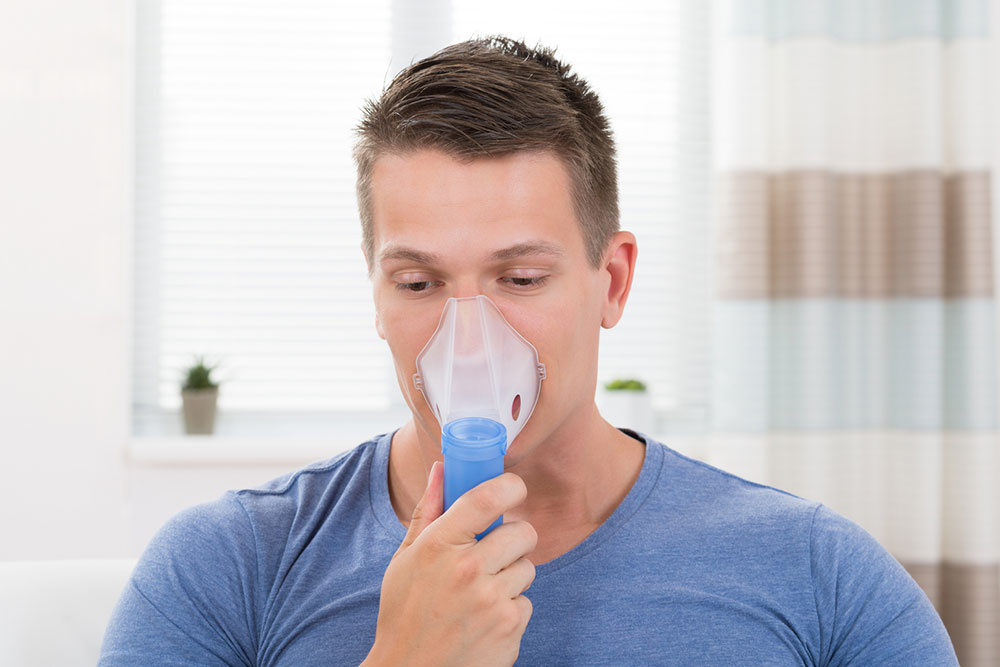Four differences between COPD and asthma
Chronic obstructive pulmonary disease (COPD) is a term that describes progressive respiratory diseases such as chronic bronchitis, emphysema, etc. It is a lung disease that causes chronic interference with lung airflow thereby impairing breathing and the condition cannot be reversed fully. Whereas, asthma is a different respiratory condition that tends to be mistaken for COPD. Asthma is marked by spasms of bronchi which causes inflammation and narrowed airways in lungs.

Causes of COPD and asthma
Both COPD and asthma have different causes. The cause of asthma is due to genetic factors, environmental factors, or even a combination of both. Asthma is triggered by allergies that can be caused by being exposed to certain kind of substances. The substances that trigger allergies vary from person to person. Some of the common triggers allergies that may cause asthma are mole, pollen, smoke, excess physical activity, cold air, pet hair, dust mites, respiratory infections, stress, preservatives added to certain foods and beverages, and even certain medications like aspirin and beta blockers.
The most common known cause of COPD is smoking. There are some other causes like exposure to fumes of burning fuel, pollution, etc. but smoking is the lead cause. A research also suggests that 20 to 30 percent of daily smokers develop the condition of COPD. This is because of smoking as well as the irritants present in smoke cause irritation in the lungs leading the bronchial tubes and air sacs to lose their natural elasticity. They tend to over-expand and when one exhales, air is left trapped in the lungs.
Triggers of COPD and asthma
Just like the causes, the triggers of COPD and asthma are also different. Asthma usually tends to turn worse by exposure to allergens, exercise, cold air, etc. COPD is aggravated largely by respiratory tract infections like flu and pneumonia. COPD can usually be made worse when exposed to environmental pollutants.
Age of onset of COPD and asthma
One of the visible difference between COPD and asthma is the age when usually the symptoms begin. Initial diagnosis of people with asthma is in childhood and most children who are diagnosed with the condition of asthma experience their symptoms by the age of 5. Whereas, people who have COPD usually do not get diagnosed until they are 40 years or older. This happens because COPD is usually caused by years of smoking and hence, the disease has a slow level of progression.
Treatments for COPD and asthma
Asthma is a long-term disease, but the medical condition can be managed and the symptoms can be controlled with proper treatment. One of the key steps in the treatment of asthma includes recognizing what triggers the symptoms of the patient and the necessary precautions that are needed to be taken to avoid them. Also, it is essential that a person who is diagnosed with asthma pays attention to his breathing on an everyday basis in order to ensure that the medications are effective. Some of the common ways of treating asthma are-
- Bronchodilators
Bronchodilators are also known as the medications that provide quick relief. Some of the most common bronchodilator medications prescribed by the doctor are ipratropium also known as Atrovent, beta agonists, intravenous or oral corticosteroids. - Allergy medications
One of the major cause of asthma is allergies. The medications to fight the triggers caused by allergies are omalizumab and allergy shots also known as immunotherapy. - Bronchial thermoplasty
Bronchial thermoplasty is a treatment that involves heating the inside areas of the airways and lungs with an electrode. The electrode tends to shrink the smooth muscle inside the airways. The treatment reduces the airway’s ability to tighten, this makes it easier for a person to breathe, and this reduces the possibility of asthma attacks.
Just like asthma, COPD is a long-term health condition and the goal is to conduct treatments that help to control the symptoms. Also, the other key objective is to prevent the condition from getting worse as COPD is a progressive condition. One is strictly advised to quit smoking and also avoid exposure to secondhand passive smoke. This is the key step that ensures that COPD symptoms don’t become worse. Some of the methods used to quit smoking include nicotine replacement medications and products, joining support groups as well as therapy hypnosis. Some of the common treatments for COPD are as follows.
- Medications
Some of the medications that are used for treating COPD are oral steroids, phosphodiesterase- 4 inhibitors, inhaled steroids, antibiotics, theophylline, combined inhalers, and antibiotics. - Lung therapies
Some of the lung therapies used for treating COPD are oxygen therapy and pulmonary rehabilitation programs. These programs include education, nutritional advice, counseling sessions and physical training. - Surgeries
To treat COPD, surgeries like lung volume reduction surgery, bullectomy, and lung transplant are conducted. The type and the combination of surgeries vary from patient to patient depending on their individual condition.




